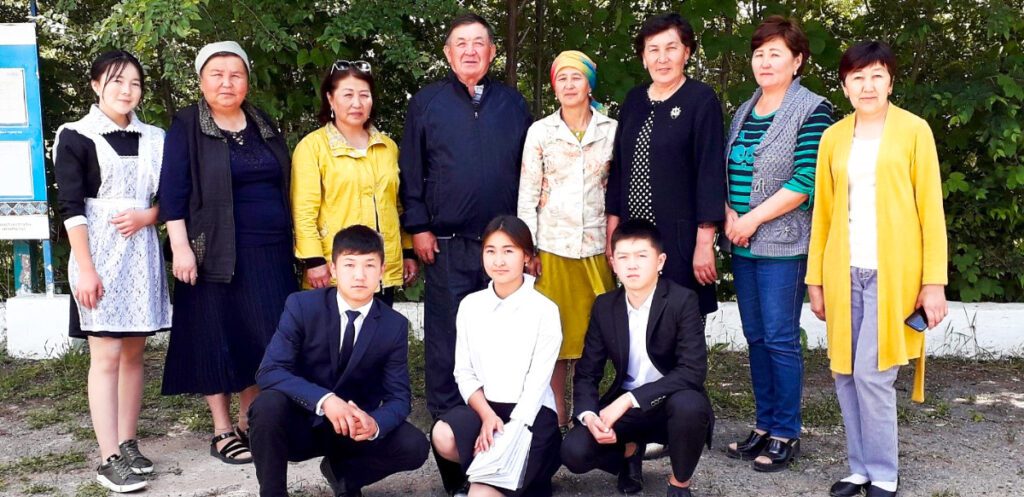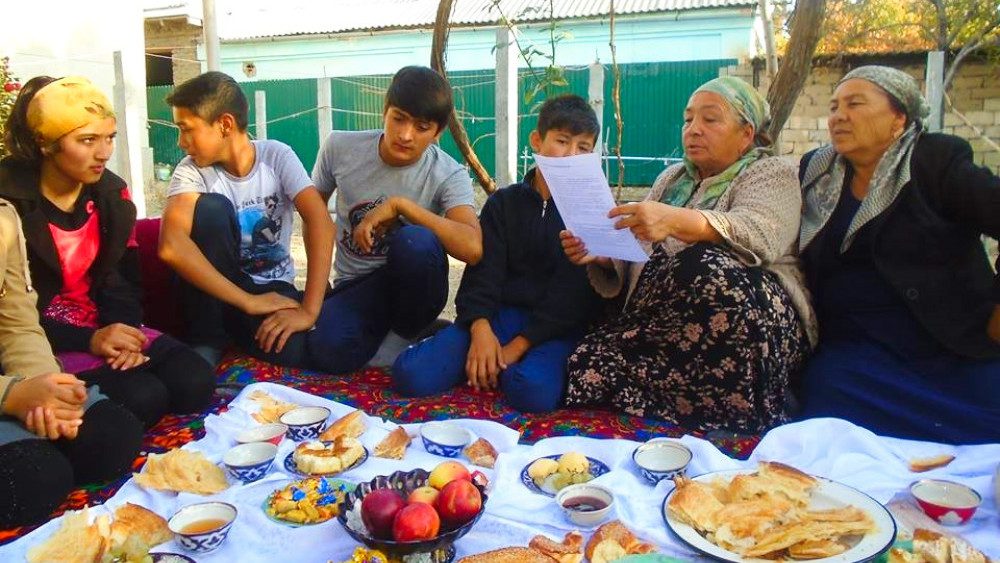
In Kyrgyzstan, the practice of forced marriages, also known as bride kidnapping, remains a serious threat to public safety and gender equality. While forced marriages are illegal in Kyrgyzstan, enforcement of laws to protect women remains weak and many offenders go unprosecuted. Victims of bride kidnapping often feel a deep sense of shame and end up staying in forced marriages, due to enormous social pressure, public condemnation, and fear of acts of retaliation.
The negative effects of bride kidnapping reverberate through communities, resulting in psychological trauma and a vicious cycle of gender-based violence (GBV). HelpAge understood that ending this debilitating practice hinges on changing social attitudes and views from the inside out, starting in rural communities where the practice is especially common.
Since 2003, HelpAge has worked in Kyrgyzstan on a range of issues affecting older adults, including healthcare, livelihoods, as well as prevention of violence, abuse, neglect. We believed that older people, who are grandparents, neighbors, and leaders in their community, had an important role to play in effecting social change.
In 2018, HelpAge embarked on an ambitious project, which sought to combat gender-based violence in rural communities by fostering meaningful dialogue and coordination among people of all ages and genders. The project set up intergenerational groups of older and younger people in 16 communities, dedicated to increasing public awareness of bride kidnapping’s harmful effects and the importance of gender equality and human rights. HelpAge Kyrgyzstan trained group members of all ages on gender-based violence across the life course and channels for legal recourse, providing guidance on how to handle instances of bride kidnapping and domestic violence in their communities. The intergenerational groups focused on reaching school-age girls (ages 13-16), and their mothers to facilitate open, honest family discussions to combat bride kidnapping. It also engaged fathers and sons through community meetings and events that challenged gender stereotypes and traditional gender roles.
The intergenerational bonds formed between older and younger people in the community were critical to effective public education. The project facilitated social activities where older and younger members learned from each other, such as cooking classes where older people shared how to cook national dishes and technology classes where younger people demonstrated how to use mobile phones. Because of these connections, we have seen older people in the community step in to mediate domestic violence cases and call for change in how girls are treated in society and in their own households.
The project is slated to reach 16,000 people through the intergenerational groups, gender action learning system (GALS) trainings, media campaigns, and engagement with local authorities, courts, and religious leaders.
Intergenerational Group in Kakyr Village

The Kakyr intergenerational group was established in June 2018 and is made up of 14 men and women (6 young and 8 older). It is led by a 70-year-old woman named Mubarak-apa. Members of the group say she is a wonderful leader because she has a knack for getting people to listen to her. A well-known activist and recognized authority in the village, Mubarak-apa is effective at organizing events, such as lectures on gender-based violence, observances for awareness days such as the Day of the Girl, as well as trainings on gender equality and rights.
In Kakyr, the group identified cases of early marriage and domestic violence in the village and took action:
In our village, there was a case of parents who wanted to marry their daughter off before she was 18 years old. We learned about this from the girl’s schoolmates. The parents did not know that this was a crime. The intergenerational group intervened, making the parents aware that this is a criminal offense that carries serious punishment, including heavy fines. We were able to stop the early marriage. Now the girl has finished high school and is enrolled in college.”
Intergenerational group member
The group also organized classes where younger and older people took turns teaching skills, including cooking and mobile phone use.
At the masterclasses, young people showed me functions on a mobile phone that I did not know about before. I really enjoy talking with youth. It used to be difficult for me to find common ground with them, but now I really like it. I’ve also applied the knowledge I’ve gained during the project to my own family. I have 9 people living in my household, including my son, daughter-in-law, and their children. We now equally distribute housework between men and women. I have a great relationship with my daughter-in-law, we help each other, and my son also helps us.”
Mubarak-apa
The project Across Generations and Gender Borders – Communities Combatting Gender-Based Violence in Kyrgyzstan is funded by the European Union and implemented by UN Women in Kyrgyzstan in partnership with HelpAge International and Agents of Change.


